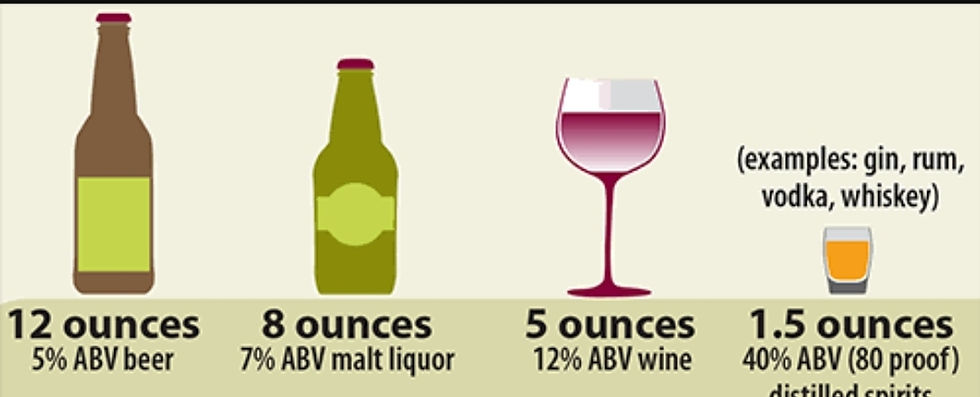Alcohol problems — when is excess drinking a problem?
- Dr Amit Bhasin MBBS, MD(Med), DM(Gastro) Senior Consultant Gastroenterologist, Gold Medal

- Feb 12, 2021
- 3 min read

How do I know if I am drinking too much?
If alcohol is having a negative effect on your life, you are probably doing excess drinking and you have a alcohol drinking problem Answer these questions:
●Have you lost control of your drinking? For example, do you sometimes find that you drink more than you meant to?
●Do you need to drink larger and larger amounts to get the effect you want? Or do you get sick or feel physically uncomfortable if you cut down on your drinking?
●Have you lost your job, gotten in trouble with the law, or had problems with your friends or family because of alcohol?
If you said yes to any of these questions, or if you just think you have a problem, mention it to your doctor or nurse. They can help you find out if you do have a drinking problem. Do not be embarrassed to talk with them about it. Alcohol problems are common. But there are treatments that can help.
What happens if I keep drinking too much?
People who drink too much can get serious liver and heart disease. They can get different types of cancer. And they can damage their brain. Plus, people who drink too much are more likely than people who do not to:
●Have car accidents
●Kill themselves
●Drown
●Be seriously hurt
What is alcohol use disorder?
Alcohol use disorder is basically the medical term for alcoholism or alcohol addiction. People who have alcohol addiction have 2 or more of the following problems. The more of these they have, the more severe their disorder.
●They end up drinking more alcohol than they planned to or for a longer time than they planned to.
●They wish they could cut down on alcohol, but they can't.
●They spend a lot of time trying to get alcohol, getting drunk, or recovering from being drunk.
●They crave or have a strong desire or urge to drink alcohol.
●Because of their alcohol use, they often don't do things that are expected of them, such as go to work or school, remember family events, and clean their home.
●They keep drinking even if it causes or worsens problems in their relationships or interactions with other people.
●They stop or cut back on important social, work, or fun activities they used to do.
●They keep drinking alcohol even in situations where it is dangerous to do so (such as while driving).
●They keep drinking alcohol even when they know they have a physical or mental problem that was probably caused or made worse by their drinking.
●They need to drink more and more to get the same effects they used to get with less. Or they get less effect from using the amount that used to get them drunk. This is called "tolerance."
●They have "withdrawal symptoms" if they stop drinking alcohol after drinking for a long time. Withdrawal symptoms can include:
•Sweating or a racing heart
•Hand trembling
•Insomnia (not being able to sleep)
•Nausea or vomiting
•Seeing, feeling, or hearing things that aren't really there (these are called "hallucinations")
•Being restless
•Anxiety
•Seizures (these can be serious, even life-threatening)
What treatments can help?
People who have problems with alcohol can:
●See a counselor (such as a psychologist, social worker, or psychiatrist)
●Take medicines
●Take part in a support group such as Alcoholics Anonymous (sometimes called AA)
All of these treatments can help, and they can be combined.
There are a few different medicines doctors and nurses can use to treat alcohol problems. These medicines work in different ways. They can:
●Change the way your brain responds to alcohol so that it is less fun
●Reduce your craving for alcohol
●Make you feel sick if you do drink
●Help you feel less sick when you stop drinking
Can I stop drinking on my own?
Many people get over their drinking problem on their own. But people who have been drinking several days a week for weeks in a row should not try to cut down without the help of a doctor or nurse. People who drink that much can die if they stop or cut down on drinking too quickly.




